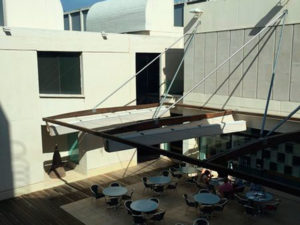
A sunny day in Barcelona, I decided to go for a walk in the Fundació Miró. I observed carefully that the chairs placed in the terrace are the same ones that were there 20 years ago. They’ve probably been repaired at some point in the past few years, and this reparation may have costed the same than buying new chairs.
Why have they chosen that the best option was to repair them? What are they winning then?
The philosophy of cooperation with the environment is one of the most resigned pillars in the actual industry. Trying to not generate waste or trying to reduce it the most as we can, and being conscious of the natural instability that leads us to overconsuming shows the importance of repairing what is broken instead of replacing it.
If the initial product has a high quality, we should profit it the best we can. The problem is that society has get used to the spiral of consumerism eclipsed by programmed obsolescence. It seems that durability is less profitable than replacing the product continuously.

Various enterprises care specially about it. They care about the fact that their products are 100% reusable, recyclable and reducible in a future.
In Indea64 the aluminum that structures the skeleton of the furniture is respectful with the environment, as well as stainless steel. Fabrics are weaved in a recyclable way and are profited as maximum as possible. All these factors contribute to the fact that the durability of the product is categorically superior, and its reparation is way easier.
We must to a balance: do we want to keep on consuming in a rushed way or do we want to consume less but in a responsible way? The question really doesn’t need an answer.
